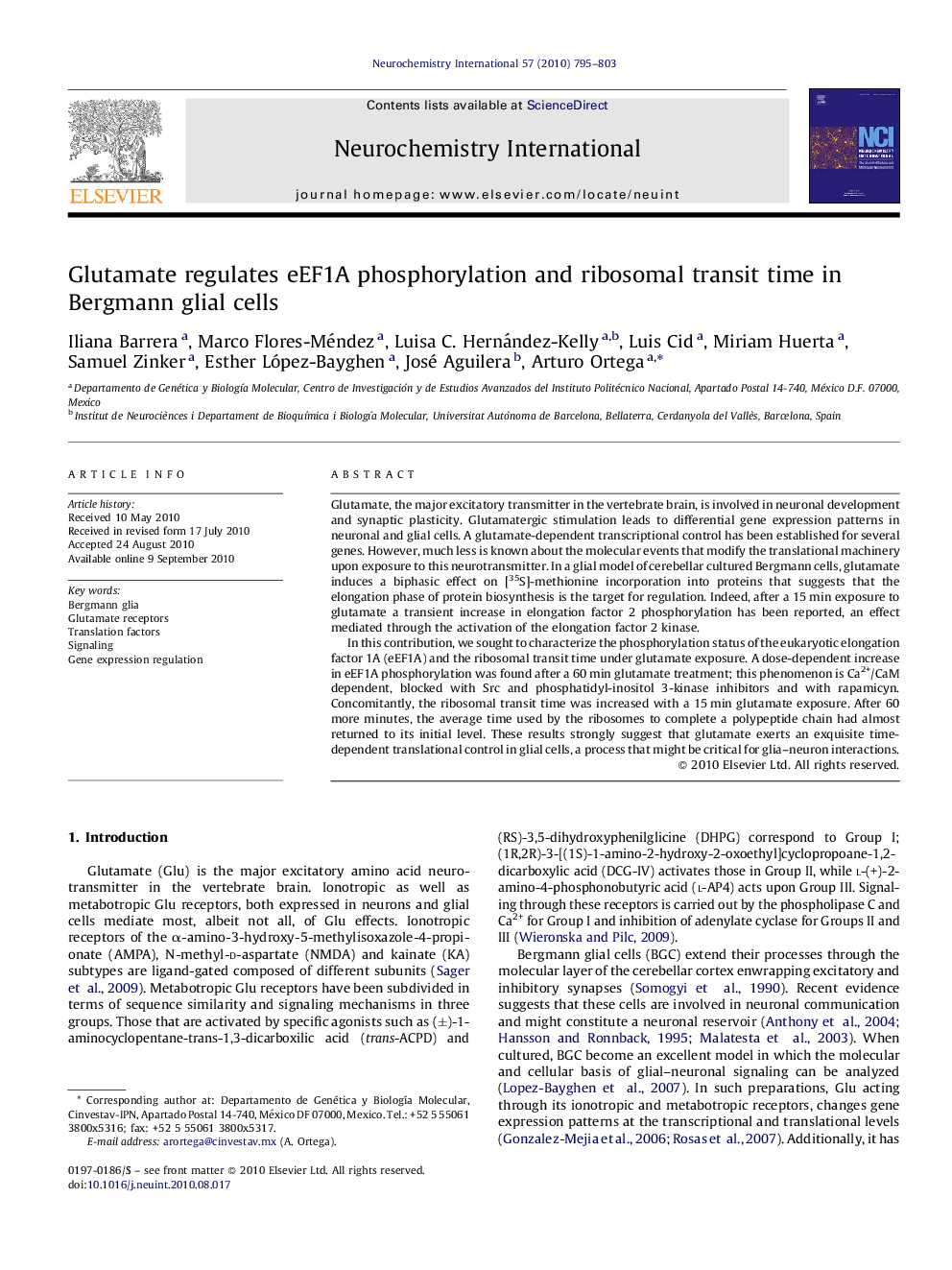| Article ID | Journal | Published Year | Pages | File Type |
|---|---|---|---|---|
| 2200988 | Neurochemistry International | 2010 | 9 Pages |
Glutamate, the major excitatory transmitter in the vertebrate brain, is involved in neuronal development and synaptic plasticity. Glutamatergic stimulation leads to differential gene expression patterns in neuronal and glial cells. A glutamate-dependent transcriptional control has been established for several genes. However, much less is known about the molecular events that modify the translational machinery upon exposure to this neurotransmitter. In a glial model of cerebellar cultured Bergmann cells, glutamate induces a biphasic effect on [35S]-methionine incorporation into proteins that suggests that the elongation phase of protein biosynthesis is the target for regulation. Indeed, after a 15 min exposure to glutamate a transient increase in elongation factor 2 phosphorylation has been reported, an effect mediated through the activation of the elongation factor 2 kinase.In this contribution, we sought to characterize the phosphorylation status of the eukaryotic elongation factor 1A (eEF1A) and the ribosomal transit time under glutamate exposure. A dose-dependent increase in eEF1A phosphorylation was found after a 60 min glutamate treatment; this phenomenon is Ca2+/CaM dependent, blocked with Src and phosphatidyl-inositol 3-kinase inhibitors and with rapamicyn. Concomitantly, the ribosomal transit time was increased with a 15 min glutamate exposure. After 60 more minutes, the average time used by the ribosomes to complete a polypeptide chain had almost returned to its initial level. These results strongly suggest that glutamate exerts an exquisite time-dependent translational control in glial cells, a process that might be critical for glia–neuron interactions.
Graphical abstractFigure optionsDownload full-size imageDownload as PowerPoint slideResearch highlights▶ Glutamate augments eEF1A phosphorylation through a Ca2+/CaMKII dependent pathway. ▶ Glutamate increases ribosomal transit time in Bergmann glia cells. ▶ Glutamate regulates translation elongation in Bergmann glia cells.
